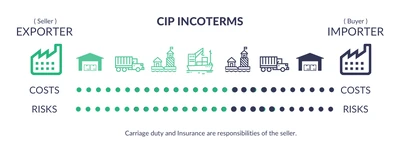
In the context of the globalized economy, the circulation of goods has transcended geographical boundaries, and international trade has become a crucial engine for economic development. As a world manufacturing powerhouse, China consistently ranks among the top in global exports, while Canada, as a significant North American economy, engages in increasingly close trade relations with China. This article explores how to efficiently and safely transport Chinese goods to Canada within the framework of global commerce flow.
In the process of shipping goods from China to Canada, choosing appropriate logistics channels is of paramount importance. Currently, sea freight, air freight, and land transport are the three main international transportation methods. Sea freight, despite its longer duration, offers relatively lower costs and is suitable for transporting bulk goods. Air freight, with its high speed, is appropriate for urgent or high-value items. Land transport, either by rail or road, is suitable for the transportation of goods between neighboring countries. Depending on the nature, quantity, and transportation requirements of the goods, it is crucial to flexibly select the appropriate mode of transportation.
Furthermore, optimizing logistics channels is key to improving efficiency. This involves planning transportation routes rationally, reducing transit points, and enhancing loading and unloading efficiency. By introducing advanced logistics management systems and technological means, real-time monitoring and precise management of the entire process of goods transportation can be achieved, ensuring that the goods arrive at their destination on time and safely.
In cross-border trade, compliance with relevant regulations is crucial to ensure the smooth clearance of goods. Both China and Canada have strict regulations concerning import and export, covering aspects such as tariffs, quotas, licenses, and more. Therefore, before exporting goods, it is necessary to fully understand and comply with the trade regulations of both countries to ensure the compliance of the goods.
Additionally, attention should be paid to trade agreements and preferential policies between the two countries, enabling better utilization of these policies to reduce trade costs and enhance competitiveness. Collaborating with professional trade consultants or lawyers can help businesses better deal with potential trade disputes and legal risks.
With the rapid development of cross-border e-commerce, an increasing number of Chinese goods enter the Canadian market through e-commerce platforms. These platforms not only provide consumers with a convenient shopping experience but also offer businesses a broader sales channel. Through cross-border e-commerce platforms, businesses can directly trade with Canadian consumers, reducing intermediaries and lowering costs.
Moreover, cross-border e-commerce platforms offer rich marketing tools and data analysis functions, helping businesses better understand market demands and consumer preferences to formulate more precise marketing strategies. However, using cross-border e-commerce platforms requires compliance with platform rules and the laws and regulations of each country to ensure lawful operation.
Shipping goods from China to Canada is just the first step in international trade; excellent after-sales service and brand building are equally important. Quality after-sales service can enhance consumer trust and loyalty, increasing the likelihood of repeat purchases. Brand building contributes to improving the corporate image and product added value, enhancing market competitiveness.
Therefore, while shipping goods from China to Canada, Chinese businesses should also focus on after-sales service and brand building in the Canadian market. This includes establishing a comprehensive customer service system, providing convenient return and exchange services, and strengthening brand promotion and publicity. Through these measures, Chinese businesses can establish a good reputation and image in the Canadian market, laying a solid foundation for future trade cooperation.
In conclusion, against the backdrop of global commerce flow, shipping goods from China to Canada requires comprehensive consideration of logistics channels, trade regulations, cross-border e-commerce platforms, and after-sales service and brand building. By continuously optimizing these aspects, Chinese businesses can more efficiently and safely deliver goods to the Canadian market, achieving mutually beneficial results in cross-border trade. Contact CUC Freight for the cheapest freight from China to Canada.
 How to find a reliable Freight Forwarder For Shipping From China To The USANovember 13, 2023Are you struggling to choose a reliable freight forwarder for your cargo from China to USA? It may result in delays, high shipping extra costs, or even lost shipments if you chose a wrong freight for...view
How to find a reliable Freight Forwarder For Shipping From China To The USANovember 13, 2023Are you struggling to choose a reliable freight forwarder for your cargo from China to USA? It may result in delays, high shipping extra costs, or even lost shipments if you chose a wrong freight for...view Twenty-foot Equivalent Unit (TEU)July 2, 2025A Twenty-foot Equivalent Unit (TEU) is a standardized measurement used in the shipping and logistics industry to describe the capacity of container ships and terminals. One TEU represents the space ta...view
Twenty-foot Equivalent Unit (TEU)July 2, 2025A Twenty-foot Equivalent Unit (TEU) is a standardized measurement used in the shipping and logistics industry to describe the capacity of container ships and terminals. One TEU represents the space ta...view What Is a Customs Entry?October 30, 2025A customs entry is the official declaration submitted to a country’s customs authority when goods are imported or exported. It provides detailed information about the shipment, including its value, o...view
What Is a Customs Entry?October 30, 2025A customs entry is the official declaration submitted to a country’s customs authority when goods are imported or exported. It provides detailed information about the shipment, including its value, o...view Understanding the CIP Incoterm: Carriage and Insurance Paid toMay 30, 2025The CIP (Carriage and Insurance Paid To) Incoterm is one of the 11 internationally recognized trade terms defined by the International Chamber of Commerce (ICC). It outlines the responsibilities of bu...view
Understanding the CIP Incoterm: Carriage and Insurance Paid toMay 30, 2025The CIP (Carriage and Insurance Paid To) Incoterm is one of the 11 internationally recognized trade terms defined by the International Chamber of Commerce (ICC). It outlines the responsibilities of bu...view